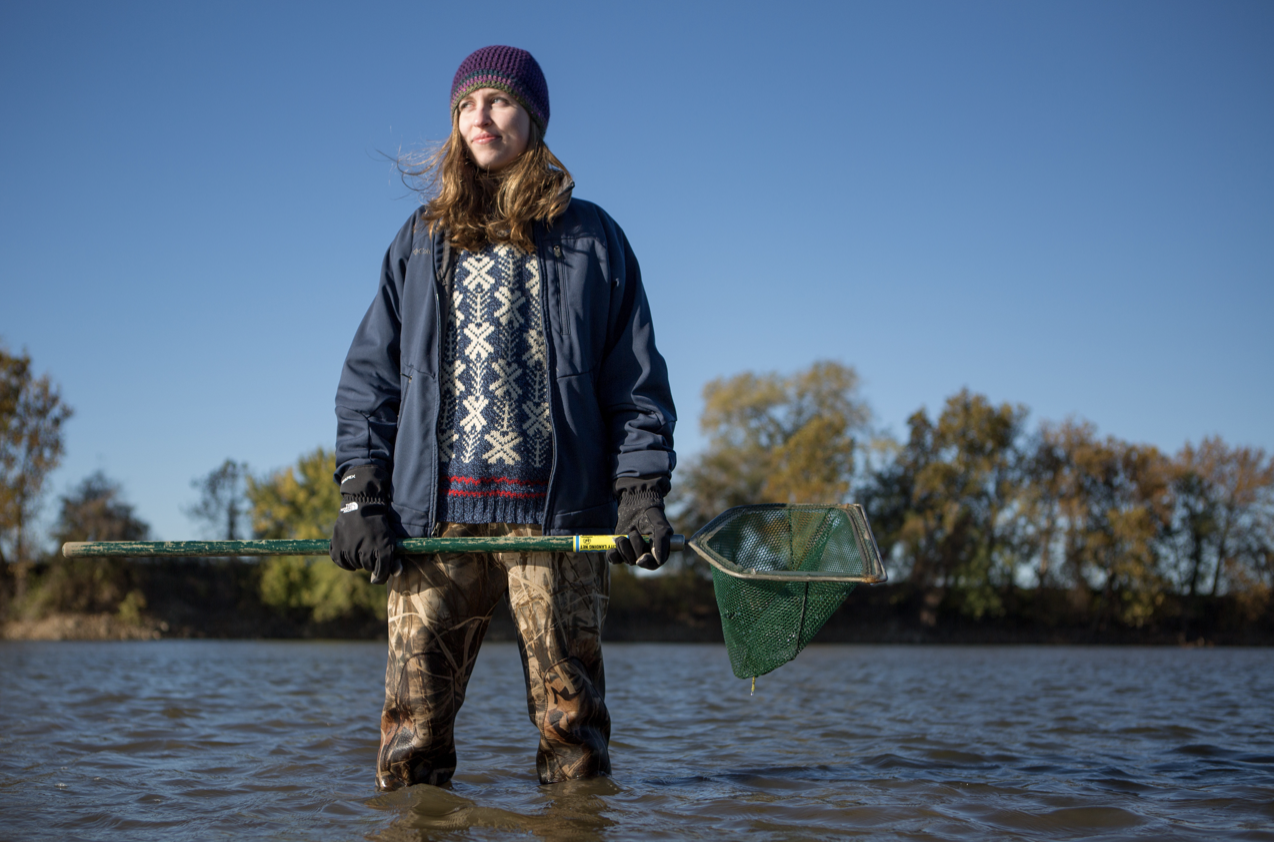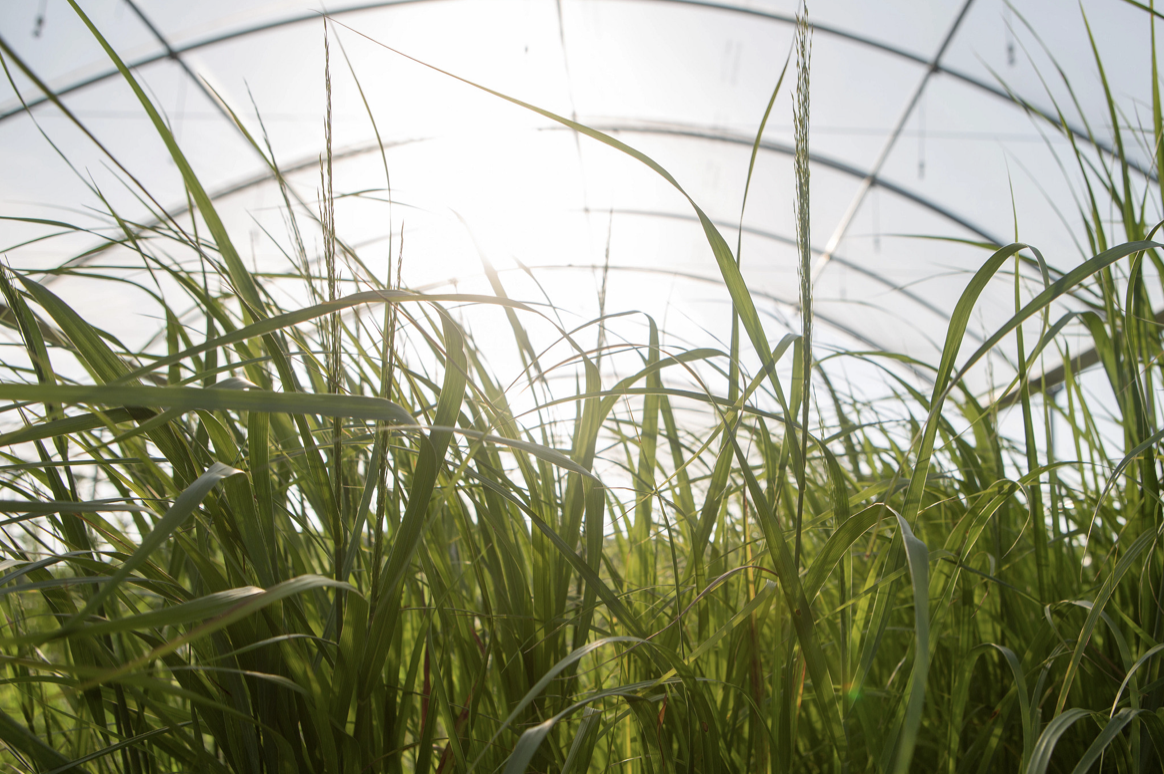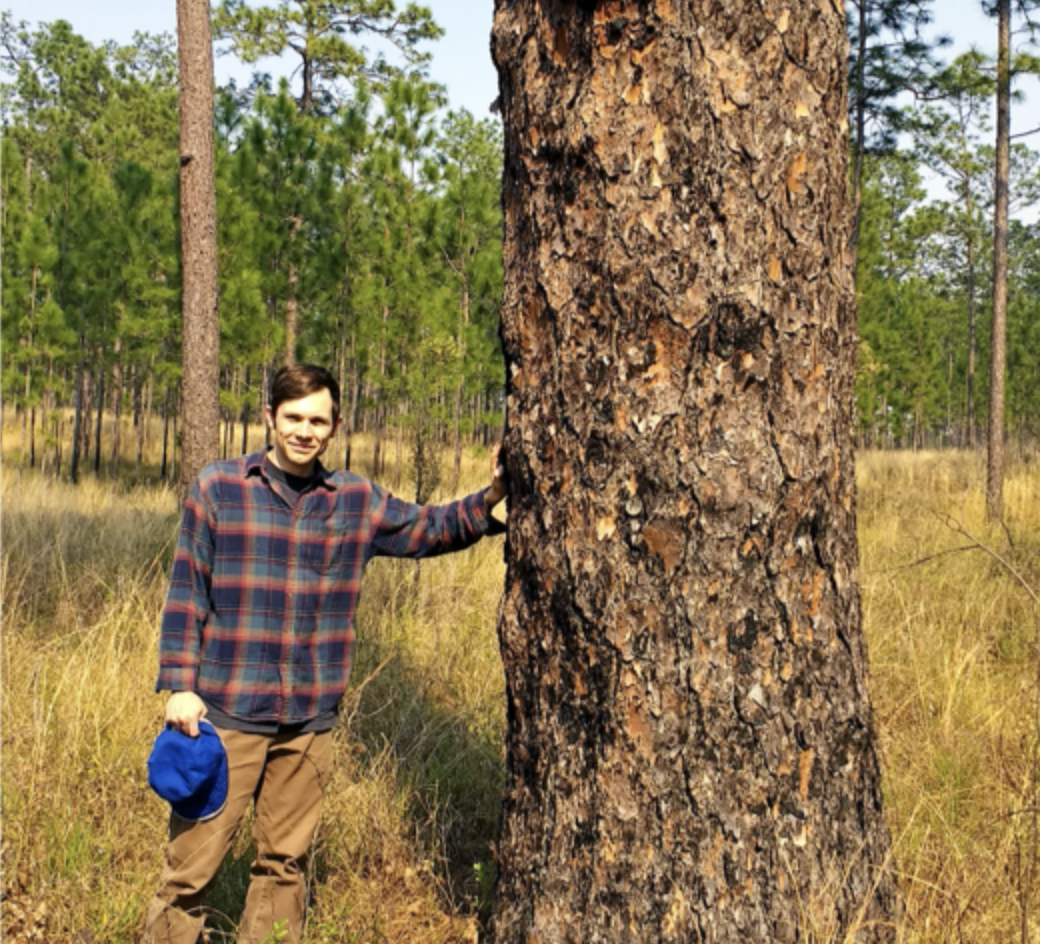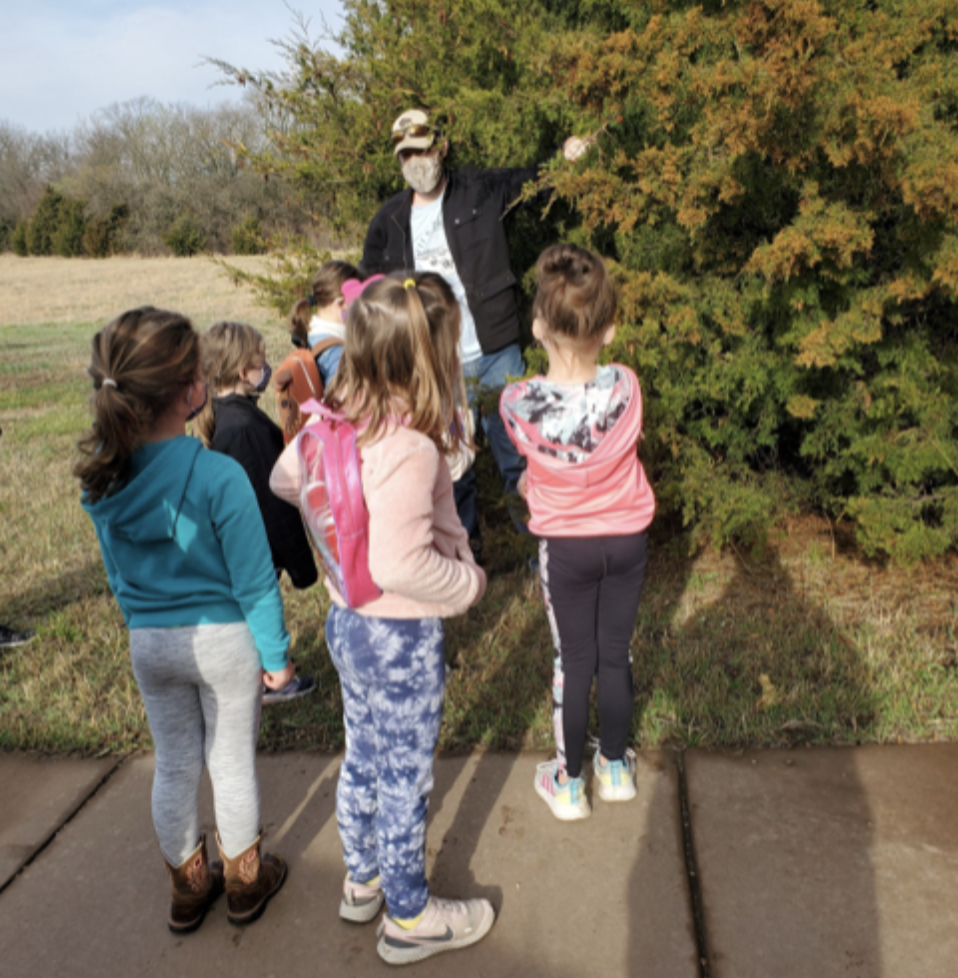Understanding Our Environment

April 2021 Issue
Understanding Our Environment is the internal newsletter for the Kansas Biological Survey & Center for Ecological Research community. Please email biosurvey@ku.edu regarding any errors or omissions.
Photo: Forest floor of Breidenthal Biological Preserve in spring, KU Field Station (Kirsten Bosnak/Kansas Biological Survey)
Comings and Goings
Emily Arsenault, doctoral student in the River Ecology Lab of Jim Thorp, has accepted a research doctoral position at Bates College in Lewiston, Maine, and will move there after mid-May to begin June 1. She will defend her dissertation via Zoom in late June or early July. Jim, professor of ecology and evolutionary biology (EEB) and a senior scientist at the Kansas Biological Survey, shares: “Emily has worked on food webs in rivers in the U.S. and Mongolia for her dissertation and will soon submit some groundbreaking manuscripts on her work to journals. We will miss her presence in the lab and field, but we are excited that she has this opportunity.”

New Elemental Services Center
The Kansas Biological Survey has opened the new KU Elemental Services facility, which aims to expand capacity for ecological, environmental and biogeochemical research at the University of Kansas. Services are also available to non-KU researchers. The developing facility will contain instrumentation and sample processing equipment for analysis of carbon, nitrogen and phosphorus from soil, water, and plant and animal tissue. The fee structure for sample analysis is based on processed samples prepared for analysis. The facility does not prepare samples, but infrastructure can be used by KU researchers to prepare samples in the facility for specific analysis. Sara Baer, director of the Bio Survey and professor of EEB, directs the facility. Please contact Aoesta Rudick, manager, for more information.
Grants and Fellowships
Maggie Wagner has been awarded a three-year, $900,000 NSF IOS (Division of Integrative Organismal Systems) grant for a research project exploring the role of microbes in the hybrid vigor of corn crop plants. The project title is “Genetics and mechanisms of microbe-dependent heterosis.” The project will provide support for two postdoctoral researchers, one doctoral student and two undergraduate researchers. In addition, it will support four high school teachers’ attendance of researcher-led workshops to learn about soil microbes and agricultural systems. Co-principal investigators are Peter Balint-Kurti of the USDA Agricultural Research Service and Manuel Kleiner of North Carolina State University. Maggie is a KU assistant professor of EEB and an assistant scientist at the Bio Survey.
Sharon Billings has been awarded a three-year, $236,000 grant from the USDA’s National Institute of Food and Agriculture for her research project titled “SitS (Signals in the soil): Collaborative research: Soils are signaling shifts in aggregate life-cycles: What does this mean for water, carbon and climate feedbacks in the Anthropocene?” The project will provide support for a graduate research assistant. Sharon is Dean’s Professor of EEB and a senior scientist at the Bio Survey.
Sarah Flynn, doctoral student in the Burgin Lab, has been awarded a three-year, $138,000 NSF Graduate Research Fellowship to study nitrogen cycling in intermittent streams. Her project title is “How does stream intermittency affect nitrogen loading and processing in the Great Plains?” Amy Burgin is an associate professor of EEB and an associate scientist at the Bio Survey.
Ceyda Kural, doctoral student in the lab of Maggie Wagner, has received a three-year, $138,000 pre-doctoral fellowship from the National Science Foundation for her project, “Tripsacum dactyloides: A native plant model to study microbial contributions to local adaptation and drought tolerance.”
Reb Bryant, doctoral student and Self Fellow in the Bever/Schultz Lab, has been awarded a $14,500 grant from the Friends of the Nachusa Grasslands to begin a research project isolating native arbuscular mycorrhizal fungi and testing their benefits for the restoration of threatened plant species. Jim Bever is Foundation Distinguished Professor of EEB and a senior scientist at the Bio Survey.
Publications
A paper written collaboratively by Burgin Lab group members, including current or past graduate and undergraduate students, has been published in Ecology and Evolution: “You are welcome here: A practical guide to diversity, equity, and inclusion for undergraduates embarking on an ecological experience.”
Amy Burgin has a co-authored a paper, “Rebuild the Academy: Supporting academic mothers during COVID-19 and beyond,” published in PLOS Biology, which discusses specific actions and policies that can be implemented to help alleviate the disproportionate burden the COVID-19 pandemic has had on academic mothers.
Christopher Rogers, Bio Survey assistant research professor, has a new paper in Zoological Studies, “Preliminary study of temperature effects on the size and shape in the modern Spinicaudatan Eulimnadia texana (Crustacea: Branchiopoda).” He writes that the paper demonstrates the carapace morphology variation in relationship to temperature in clam shrimp and that as a result, many fossil species may not be valid.
Theses and Dissertations
Congratulations to Jacob Hopkins, doctoral candidate in the Sikes Lab, who successfully defended his dissertation, “Fire and fungi: Fungal ecology in pyrophilic ecosystems,” on March 23. Ben Sikes is an associate professor of EEB and an associate scientist at the Bio Survey.

New KU Field Station Video
KU Marketing Communications staff members have been working for months on a new video about the KU Field Station and released it last week. It includes interview clips from Field Station Director Bryan Foster (professor of EEB and Bio Survey senior scientist) as well as several KU students. The video is posted on KU’s YouTube Channel.
Publicity
Chip Taylor, Monarch Watch director, recently gave an interview for a Discovery Channel program about monarch conservation, with a discussion about declining populations, and creating and conserving habitats. The program is still in the interview/filming stage; the staff at Monarch Watch will share more information soon.
Student Outreach
Nathaniel Weickert and Ashley Wojciechowski, graduate students in the Baer Lab, led a local kindergarten Girl Scout nature hike at the KU Field Station in late March. The walk was part of the work of the EEB GSO (Graduate Student Organization) outreach committee, which has a partnership with the Girl Scouts of Northeast Kansas and Northwest Missouri to offer nature hikes and other activities for scouts of various ages to complete specific badges.
Ashley also co-manages the KU Community Garden at the KU Field Station’s Native Medicinal Plant Garden along with Haley Burrill, doctoral student in the Bever/Schultz Lab, and Kayla Clouse, doctoral student in the Wagner Lab. The KU CLAS covered their work in a blog post as they took over student leadership last year to focus more on donating locally grown produce. The garden donated nearly 1,000 pounds of produce to Just Food in Lawrence and will continue in the 2021 season. Any KU student, or faculty or staff member can join the Community Garden; email kucommunitygarden@gmail.com. The group already has assigned individual gardening beds for the season but also will conduct monthly service days.
Beyond KU
Reb Bryant is starting a project with Courtney Masterson of Native Lands LLC to test inocula in enriching grassland restoration at the Black Jack Battlefield historic site near Baldwin City. They will lead a group of volunteers in planting at the site on Earth Day later this month.